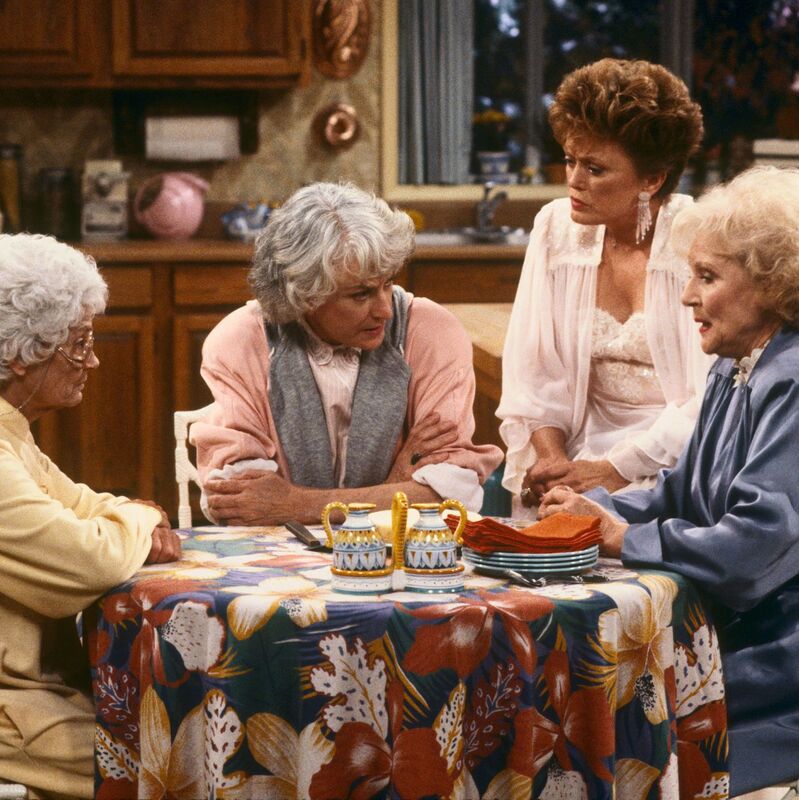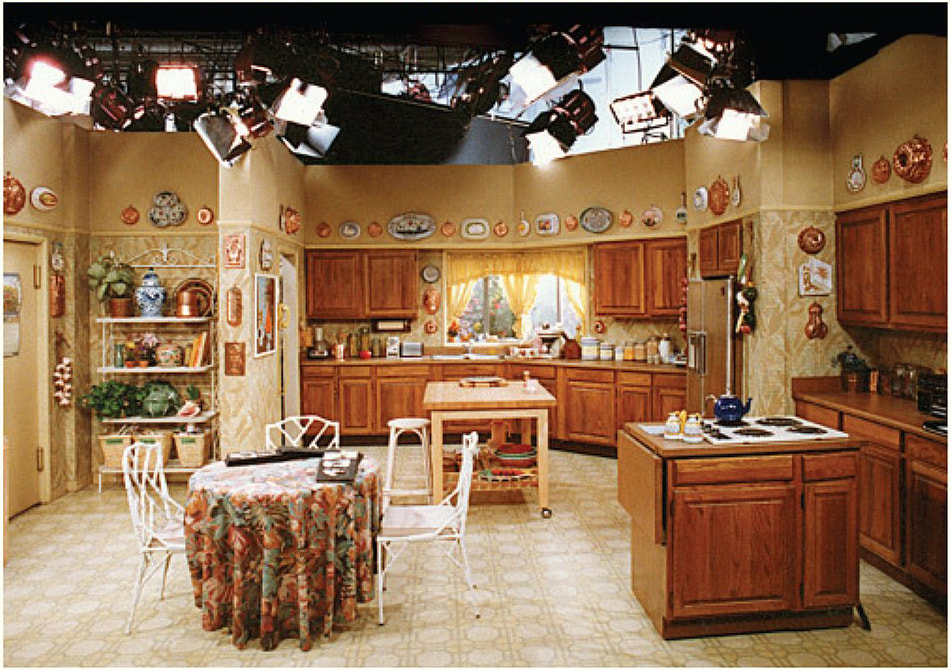|
Somehow, I missed the Golden Girls growing up. The show first aired in 1985, the year I was born, and went off the air in 1992, when I was seven. But despite the fact that it was apparently syndicated on broadcast television all through my elementary and high school years, I missed it. I did not watch a single episode. Oh, I knew that it existed, and by college, thanks to the virality of the internet, I got the references. I watched Betty White on Hot in Cleveland and watched with glee as she roasted William Shatner and essentially became a saint of the internet age. Thanks to the internet, I knew that Bea Arthur was a patron saint of LGBTQ+ youth, too. But I never saw the show, even when I finally did get access to cable. When Betty White passed away on December 31, 2021, just a little over two weeks shy of her 100th birthday (coming up on January 17th), I decided to see what all the fuss was about. Just one episode in, I was totally hooked. Rose reminds me of Minnesota (I almost went to St. Olaf!), I love Blanche's Southern charm and unapologetic sexuality, and while I'm not a huge fan of how often the show made fun of Bea Arthur's appearance, I appreciate Dorothy's whip smarts and New Yorker bluntness and sarcasm. And who could say no to firecracker Sophia? I've been binging episodes ever since. Thank goodness there are so many of them. But one thing that really struck me was the division of household labor, which features fairly prominently in the first few episodes, as well as subsequent flashbacks (once the gay male cook in the pilot episode disappears, that is). The ladies grocery shop together, and argue over what to buy. There's discussion of household budgets. When people come to visit, the ladies help each other clean. And someone or another is always in the kitchen washing dishes, cooking, or having a late-night snack. And although Sophia, with her small-village-in-Sicily background is queen of the Sunday gravy, other characters cook, too. The four ladies on the show are mature adults - they've all run their own households, raised children, managed husbands, etc. It can't have been easy for them to come to an agreement on how to run the house, but they did. And it reminded me very strongly of a passage I read in a book I now can't remember and can't find (the perils of a historian's mind. If anyone knows this reference, please let me know!) - it described a home economics college program where in their senior year, the girls lived together in a house and put into practice all the skills they had learned in class. But, as the author pointed out, the girls shared the workload together, which may have given them unrealistic ideas about the labor of managing their own households. In our last evaluation of memes, we talked about how convenience foods in the 1950s and '60s were in part adopted quickly in reaction to a reduction in available household labor. With no servants/hired help and fewer children, alongside changing expectations of childhood, more and more women were shouldering the burden of household labor alone. Which is why Golden Girls is so refreshing: four adults pulling together relatively equally to maintain a household and keep everyone fed. There are occasional hints at people's economic statuses. For one, if any of them were independently wealthy, I doubt they'd need roommates. But while Blanche having a nanny for her children becomes a plot point, as does Rose keeping a secret that her husband was terrible with money, Dorothy and Sophia seem chronically on a budget, unable to afford some of the things the others can. Although that may just reflect Sophia's addiction to the races. But still, everyone is able to afford a rather shocking amount of eveningwear and certainly there's always enough money to keep the fridge stocked with cheesecake. The women are all in their 50s and 60s in the show (Sophia purportedly in her 80s, although Estelle Getty was a year younger than Bea Arthur), which means that they were in high school in the 1940s or earlier. In particular, Rose mentions her dismay at being rejected for joining the WACs during WWII. That means they all likely had at least some home economics training in school. And while the show is quintessentially '80s, there are hints of the 1940s and '50s everywhere, from the décor to the clothing (especially the robes). That home economics training likely served them in good stead when living with other women. They probably all had similar experiences, maybe learned how to wash dishes or make beds or do laundry a certain way. Because despite the fact that the characters come from very different backgrounds, they celebrate their differences, instead of letting them divide them (for the most, part, anyway). Today, more and more Millennials, cash-strapped by an economy that underpays them and bogged down with student loan debt they were promised would get them good jobs, are joining forces to purchase or rent homes with fellow adults they aren't married to. And as my generation contemplates retirement, many of us have thought about purchasing homes or property in concert with friends (Boomers and Gen-Xers are, too). The family/friend "compound" is becoming more and more of a thing. Communal living certainly has a lot of historical precedence. The nuclear family is a lot newer (and less effective) than most "traditional family values" folks like to admit. Which features prominently in several Golden Girls plots as the ladies struggle with deadbeat exes, estranged children and siblings, and the sting of sexism and ageism. And while home ownership is still the American Dream for many people, it makes a lot of economic sense to share household resources and labor. In this housing market? Sometimes it's the only way people can afford a place of their own. Even in the 1980s, Miami was expensive, so roommates made as much sense then as it does in most cities now. But what makes the Golden Girls TV show work is the relationships the ladies build with each other, how they support each other, and how they work together. In our modern era, it's a lot harder to find community than it once was. So if you want something similar in your life or your future, tell any naysayers, "Hey! It worked for the Golden Girls!" Just don't forget to hash out your differences with honesty and lots of late-night snacks. The Food Historian blog is supported by patrons on Patreon! Patrons help keep blog posts like this one free and available to the public. Join us for awesome members-only content like free digitized cookbooks from my personal collection, e-newsletter, and even snail mail from time to time! Don't like Patreon? Leave a tip!
1 Comment
|
AuthorSarah Wassberg Johnson has an MA in Public History from the University at Albany and studies early 20th century food history. Archives
July 2024
Categories
All
|



 RSS Feed
RSS Feed